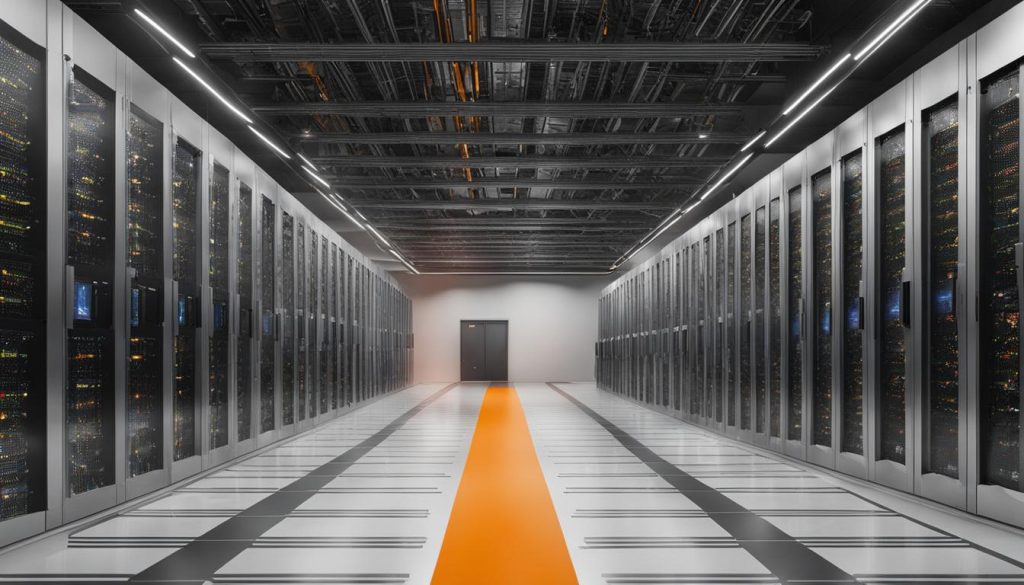Proxies have become essential for businesses and individuals needing to access the internet while hiding their IP addresses. There are two main types of proxies: residential proxies and data center proxies. Residential proxies use real IP addresses assigned to residential customers by Internet Service Providers (ISPs). They offer legitimacy, authenticity, and a low risk of blacklisting. Data center proxies, on the other hand, are IP addresses assigned to servers located in data centers. They are known for their speed and affordability, but are more likely to be detected and blocked by websites. The choice between residential and data center proxies depends on factors like cost, speed, and the level of anonymity and security required.
Key Takeaways:
- Residential proxies use real IP addresses assigned to residential customers by ISPs, offering legitimacy and authenticity.
- Data center proxies are IP addresses assigned to servers located in data centers, known for their speed and affordability.
- Residential proxies have a low risk of blacklisting, making them suitable for sensitive tasks.
- Data center proxies are more likely to be detected and blocked by websites, limiting their effectiveness in certain cases.
- The choice between residential and data center proxies depends on factors like cost, speed, and the level of anonymity and security required.
Pros and Cons of Residential Proxies
Residential proxies offer several advantages and disadvantages for users. One of the key benefits is their legitimacy and authenticity. Since residential proxies use real IP addresses assigned to residential devices, they are less likely to be detected and blocked by websites. This makes them an excellent choice for tasks that require a high level of legitimacy and authenticity.
Another advantage of residential proxies is the low risk of blacklisting. By using real IP addresses, these proxies are less likely to be flagged as suspicious or in violation of website policies. This can be critical for users who need to maintain a positive reputation online.
However, it’s important to consider the drawbacks of residential proxies as well. They can be more expensive than data center proxies, which use IP addresses assigned to servers. Additionally, residential proxies may have limited speed compared to their data center counterparts. Users should carefully weigh the benefits and drawbacks to determine if residential proxies are the right choice for their specific needs.
| Pros | Cons |
|---|---|
| Legitimacy and authenticity | Higher cost compared to data center proxies |
| Low risk of blacklisting | Limited speed |
Table: Pros and Cons of Residential Proxies
Overall, residential proxies can provide users with a higher level of legitimacy and authenticity, decreasing the chances of being detected or blocked by websites. However, they may come at a higher cost and have limitations in terms of speed. It’s important to consider these factors when deciding whether to utilize residential proxies for sensitive tasks and online activities.
Pros and Cons of Data Center Proxies
Data center proxies offer unique advantages and disadvantages in the world of internet browsing and data retrieval. Let’s take a closer look at the pros and cons of using data center proxies, considering factors such as speed and affordability, detection and blocking, and their suitability for non-sensitive tasks.
Speed and Affordability
Data center proxies are known for their remarkable speed and affordability. Since they utilize IP addresses associated with servers located in data centers, they provide fast and reliable connections to the internet. This makes them ideal for tasks that require quick data retrieval, such as market research or competitive analysis. Additionally, data center proxies are usually more cost-effective compared to residential proxies, making them a preferred choice for businesses and individuals who prioritize budget-friendly options.
Detection and Blocking
However, one key drawback of data center proxies is their higher likelihood of detection and blocking by websites. Due to their association with IP addresses associated with servers and data centers, they are more easily recognized as proxies by websites and online platforms. This can result in restrictions or limitations when accessing certain websites or engaging in specific online activities. It’s important to consider this potential downside and evaluate whether the tasks you need to accomplish require unrestricted access and a higher level of anonymity.
Non-sensitive Tasks
Data center proxies are particularly suitable for non-sensitive tasks that don’t require high levels of anonymity and security. These tasks can include activities like web scraping, ad verification, or price monitoring. Their fast connection speeds and affordability make them an efficient choice for these types of tasks where the focus is on extracting data quickly and efficiently. However, if your activities involve sensitive information or require a higher level of privacy, residential proxies may be a more appropriate option.
| Pros | Cons |
|---|---|
| Fast and affordable | Higher likelihood of detection and blocking |
| Ideal for non-sensitive tasks | May not provide the same level of anonymity and security as residential proxies |
Understanding the advantages and disadvantages of data center proxies is crucial in making an informed decision about the type of proxy that best suits your specific needs. By weighing the pros and cons, you can determine whether the speed and affordability of data center proxies outweigh the potential limitations in certain online activities. It’s important to assess your requirements, prioritize factors like cost and speed, and select a proxy type that aligns with your goals and objectives.
Conclusion
Residential proxies and data center proxies each have their own benefits and drawbacks. Residential proxies offer authenticity and legitimacy, providing a lower risk of detection and blocking from websites. They are especially useful for sensitive tasks that require a high level of anonymity and security. On the other hand, data center proxies excel in terms of speed and affordability, making them a great choice for non-sensitive tasks.
When deciding between residential proxies and data center proxies, it is crucial to consider factors such as cost, speed, and the desired level of anonymity and security. Residential proxies are ideal for those who prioritize authenticity and need a reliable connection without the risk of being blacklisted. However, they may come at a higher cost and have limited speed compared to data center proxies.
Meanwhile, data center proxies are perfect for individuals or businesses looking for fast and affordable proxy solutions. They are particularly suitable for non-sensitive tasks like market research. However, it’s important to note that data center proxies are more likely to be detected and blocked by websites due to their association with IP addresses associated with servers and data centers.
Ultimately, the choice between residential proxies and data center proxies depends on your specific needs and requirements. Whether you prioritize authenticity or speed, understanding these differences will help you make an informed decision and ensure that your internet access remains secure and anonymous.
FAQ
What are residential proxies?
Residential proxies use real IP addresses assigned to residential customers by Internet Service Providers (ISPs). They offer legitimacy, authenticity, and a low risk of blacklisting.
What are data center proxies?
Data center proxies are IP addresses assigned to servers located in data centers. They are known for their speed and affordability, but are more likely to be detected and blocked by websites.
What are the advantages of residential proxies?
Residential proxies offer legitimacy and authenticity as they use real IP addresses assigned to residential devices, making them less likely to be detected and blocked by websites. They also have a low risk of blacklisting.
What are the disadvantages of residential proxies?
Residential proxies can be more expensive than data center proxies and may have limited speed compared to their counterparts.
What are the advantages of data center proxies?
Data center proxies are known for their speed and affordability. They provide fast and reliable connections to the internet and are ideal for non-sensitive tasks like market research.
What are the disadvantages of data center proxies?
Data center proxies are more likely to be detected and blocked by websites due to their association with IP addresses associated with servers and data centers. They are also more likely to be blacklisted, limiting their effectiveness in certain cases.
When should I use residential proxies?
Residential proxies are suitable for sensitive tasks that require high levels of anonymity and security.
When should I use data center proxies?
Data center proxies are ideal for non-sensitive tasks where speed and affordability are the main considerations.

